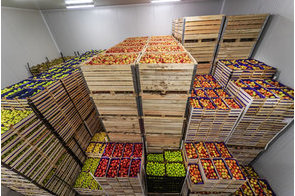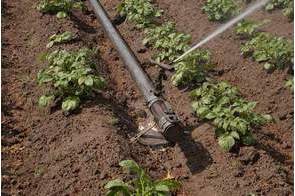AfDB partners United Nations agency to end hunger in Africa

Summary
The agreement seeks to enhance the quality and impact of investment in food security, social protection and rural development.
The Africa Development Bank (AfDB) and the Food and Agriculture Organisation of the United Nations (FAO) have agreed to catalyse investments in Africa’s agriculture sector to end hunger and malnutrition on the continent. Part of the goal of the partnership is to increase prosperity throughout the continent, according to a statement by the AfDB on Monday.
The agreement, signed by the President of AfDB, Akinwumi Adesina, and the Director-General of FAO, Jose Graziano Da Silva, at FAO’s headquarters in Rome, seeks to enhance the quality and impact of investment in food security, nutrition, social protection, agriculture, forestry, fisheries and rural development.
Under the terms of the agreement, both parties are committed to raise up to $100 million over five years to support the activities of the partnership.
“Leveraging investments in agriculture, including from private sector, is key to lift millions of people from hunger and poverty in Africa, ensure enough food is produced and that enough rural jobs are created for the continent’s growing population,” Da Silva said, adding that FAO and the AfDB are deepening and broadening their partnership to assist African countries in achieving the sustainable development goals.
The strengthened partnership between the AfDB and FAO would engender a collaborative programmes through an initial financial contribution of $15 million from both parties. FAO would provide technical assistance to cover areas such as sustainable agricultural intensification and diversification; scaling up and value chain innovations; youth in agriculture and agribusiness; agricultural statistics; climate smart agriculture; blue growth/blue economy; food security and nutrition.
Others are agri-food system; food safety and standards; women’s economic empowerment; promotion of responsible private investments; resilience and risk management and capacity building for transition states.
The expected outcomes of the programme include: better and more effective AfDB financed investment operations; increased public-private partnership investments; a better investment climate and portfolio performance; and advocacy and joint resources mobilization.
“The signing of this supplementary agreement is a milestone moment in the relationship between the AfDB and FAO,” Adesina said. “It signals our joint commitment to accelerate the delivery of high quality programs and increased investment for public-private partnerships in Africa’s agriculture sector.”
AfDB, in 2015, launched Feed Africa with a target to invest $24 million into African agriculture over a 10-year period. The bank aims to improve agricultural policies, markets, infrastructure and institutions to ensure that agricultural value chains are well developed and that improved technologies are made available to reach several millions of farmers.
The collaboration between AfDB and FAO, according to the statement by FAO, began in 1968. FAO had since then provided technical assistance for 161 AfDB-financed projects worth over $3.7 billion, representing about 21 percent of AfDB’s support to the agricultural sector.
Related
-
Group to Create $20 billion value chain for sustainable farming
Food systems account for more than 30% of global emissions and are critical in achieving the Paris Agreement and limiting ...
-
New Food importation policy could destroy Nigeria’s agriculture – Adesina
Adesina urged the Nigerian government to take advantage of the Bank’s investments and support for African farmers; ...
-
Foreign agriculture companies increase risk of conflicts in Africa – new study
The types of crops foreign investors decide to grow often require more water than the traditionally grown crops.










